
CCPA Magento: Key Provisions and Requirements
Want to know why your Magento store should be compliant with CCPA Magento? CCPA Magento not only meets legal obligations but also builds trust and loyalty among customers. This article discovers the key provisions, requirements, and implications of US privacy laws and data protection.
Key Takeaways
-
Understand the importance of CCPA compliance for Magento e-commerce websites.
-
Learn about the key provisions of CCPA and how they apply to your Magento store.
-
Discover practical steps to assess and enhance CCPA compliance within your Magento ecosystem.
-
Explore the significance of CCPA compliance for building consumer trust and reputation.
-
Gain insights into the differences between CCPA and other data privacy regulations, such as GDPR.
-
Learn how to access CCPA requirements within your Magento store.
What is CCPA Magento?
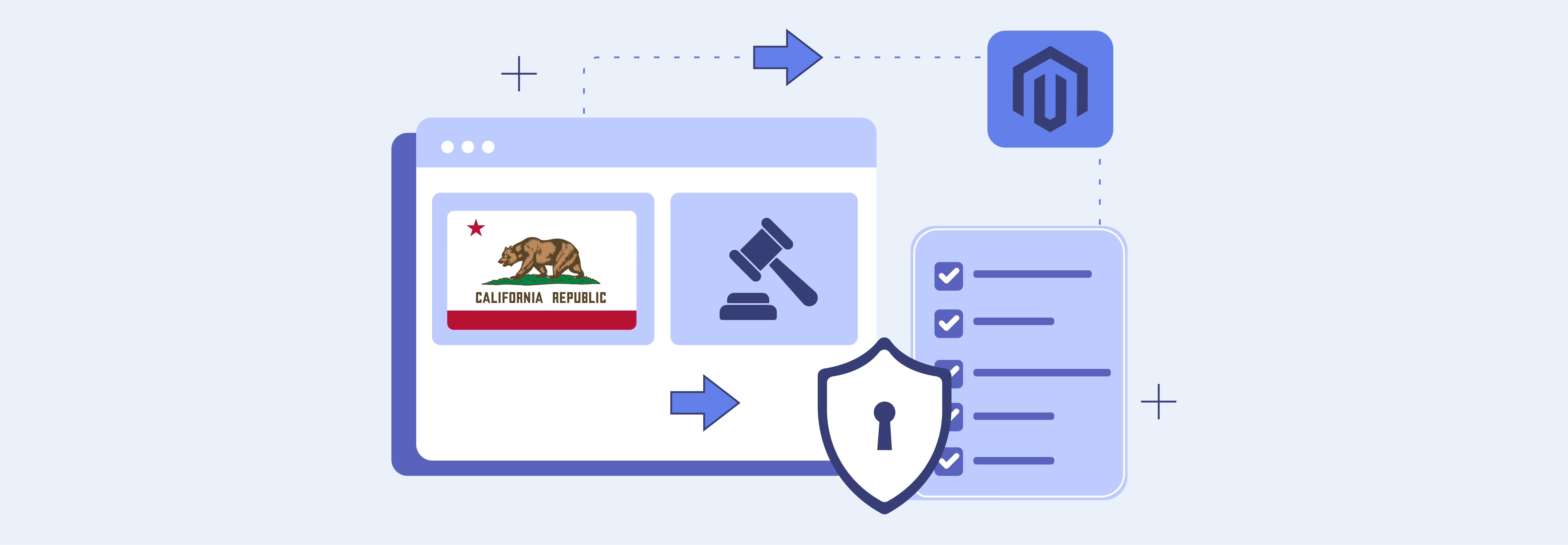
CCPA (California Consumer Privacy Act) is a state statute intended to enhance privacy rights and consumer protection for residents of California. The law came into effect on January 1, 2020.
It gives California residents the right to:
-
Know what personal information is collected about them.
-
Know whether their personal information is being sold or disclosed and to whom.
-
Access their personal information.
-
Opt out of the sale of their personal information.
-
Equal service and price, even if they exercise their privacy rights.
CCPA Magento refers to the implementation of CCPA compliance measures within a Magento store. It ensures that the website's data collection and handling practices align with the requirements set forth by the CCPA.
This may include implementing features such as:
-
Data access requests
-
Opt-out mechanisms for data selling
-
Updates to privacy policies
-
Disclosures to comply with CCPA regulations.
Significance of CCPA Magento
1. Legal Compliance
CCPA imposes strict requirements on how businesses collect, use, and share personal information. Compliance with CCPA is mandatory for businesses regardless of their physical location.
2. Protection of Consumer Privacy
CCPA is designed to enhance privacy rights and protections for California consumers. Compliance with CCPA ensures that Magento-based e-commerce websites respect consumers' rights regarding their personal information.
3. Building Trust and Reputation
Demonstrating a commitment to privacy and data protection can enhance consumer trust and confidence in your Magento store. By implementing CCPA compliance measures, businesses can signal to consumers that their privacy is taken seriously.
It could lead to increased customer loyalty and a positive brand reputation.
4. Avoiding Penalties and Legal Risks
If a business fails to comply with CCPA, it can result in legal consequences. It includes significant penalties and fines levied by regulatory authorities.
Ensuring CCPA compliance for Magento websites helps mitigate the risk of facing legal consequences and associated financial liabilities.
5. Competitive Advantage
Today, consumers are increasingly concerned about how their data is collected and used. Proactively implementing CCPA compliance measures can differentiate a Magento store from competitors.
It also attracts privacy-conscious consumers who prioritize data protection when making purchasing decisions.
Key Provisions and Requirements of CCPA
1. Consumer Rights
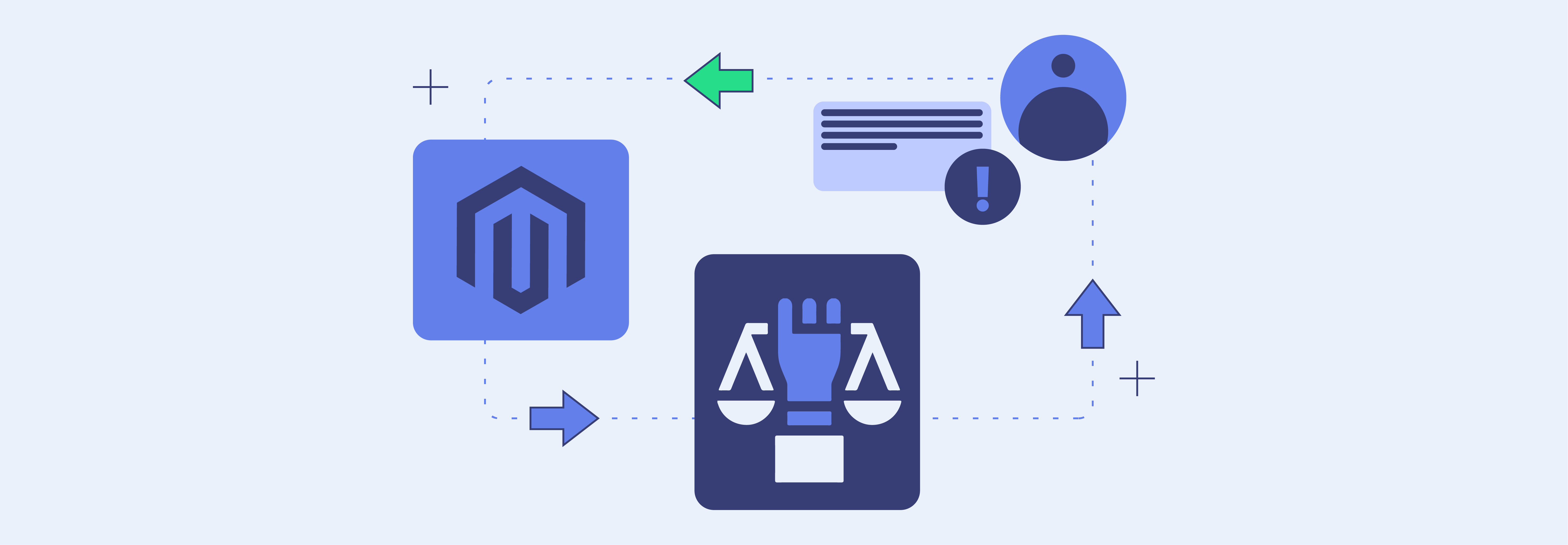
-
Right to Know: Consumers have the right to know what personal information is being collected about them. The sources from which it was collected, and the purpose of collecting it.
-
Right to Access: Consumers have the right to request access to their personal information held by businesses. It includes specific pieces of information collected about them.
-
Right to Deletion: Consumers can request the deletion of their personal information held by businesses. It is subject to certain exceptions. Businesses must also provide a toll-free number for consumers to submit data access and deletion requests.
2. Data Collection and Processing Requirements
Businesses must disclose:
-
The categories of personal information collected.
-
The purposes for which the information is used.
-
Whether it is sold or disclosed to third parties.
It must be disclosed in the form of a notice to consumers at or before the point of data collection. Minors under the age of 16 must provide opt-in consent with a parent or guardian.
3. Data Security and Non-Discrimination

Businesses are required to implement reasonable security measures to protect consumer personal information from:
-
Unauthorized access
-
Disclosure
-
Destruction.
Businesses are prohibited from discriminating against consumers with their CCPA rights, such as:
-
Denying goods or services
-
Charging different prices
-
Providing a different level or quality of service.
4. Disclosure and Transparency
Businesses must provide detailed disclosures in their privacy policies regarding:
-
Consumer's rights under the CCPA
-
How consumers can exercise their rights.
5. Third-Party Responsibilities
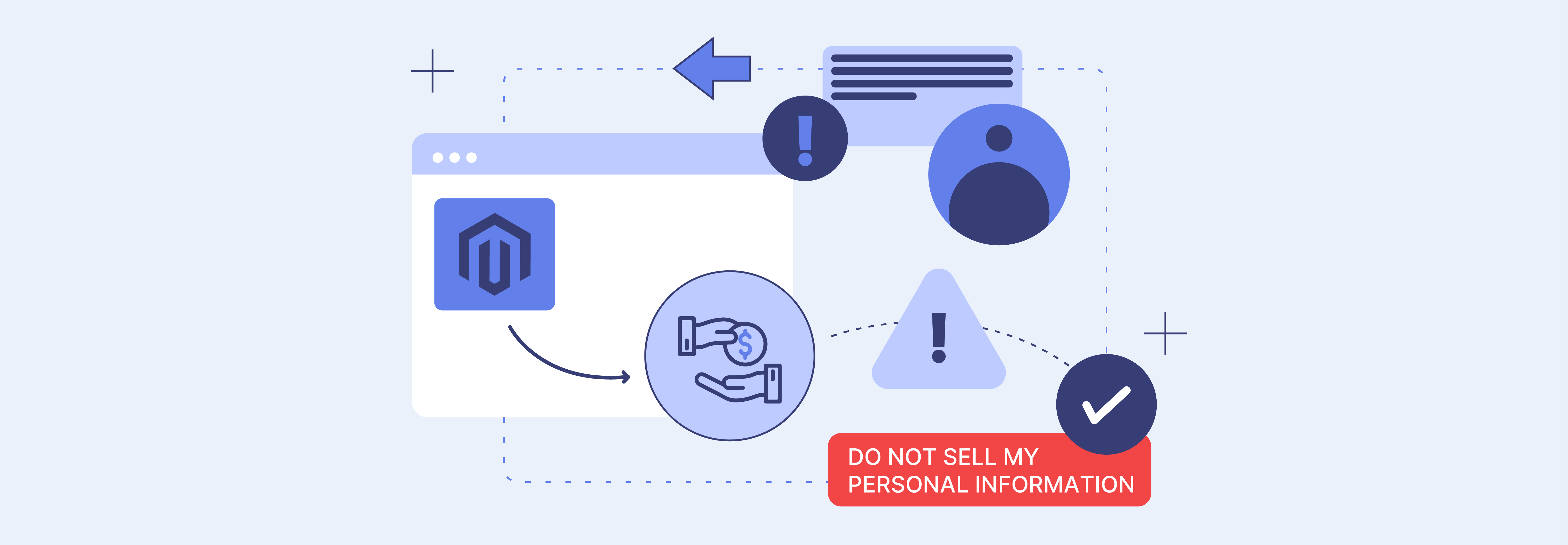
Businesses that sell or share my personal information with third parties must provide a clear and conspicuous link on their homepage titled "Do Not Sell My Personal Information" to allow consumers to opt out of such sales.
Businesses must enter into agreements with third-party service providers. It ensures that they handle personal information in compliance with CCPA requirements.
How CCPA Differs From Other Data Privacy Regulations Such as GDPR
| Aspect | CCPA | GDPR |
|---|---|---|
| Scope and Applicability | It is applied to businesses collecting the personal information of California residents. Applicable criteria include annual revenue exceeding $25 million, data collection from 50,000+ consumers, or deriving 50%+ revenue from selling personal data. | It is applied to businesses processing the personal data of individuals in the EU. It's applicable regardless of the business's location. |
| Definition of Personal Data | Personal information under CCPA is broadly defined. It encompasses any information that could reasonably be linked to a particular consumer or household. | Personal data encompasses any information relating to an identified or identifiable natural person. This includes a wide range of identifiers, both direct and indirect. |
| Consumer Rights | CCPA grants consumers rights. This includes the right to know what data is collected, access to data, and deletion of data. Consumers can also opt out of the sale of their personal information. | GDPR provides data subjects with rights such as access, rectification, and erasure. It also includes restriction of processing, data portability, and objection to processing. It also includes rights regarding automated decision-making. |
| Opt-In vs. Opt-Out | Operates on an opt-out model for the sale of personal information. Businesses must provide a clear "Do Not Sell My Personal Information" link. | Generally requires explicit opt-in consent before processing personal data, with some exceptions. |
| Penalties and Enforcement | Civil penalties up to $7,500 per violation. Enforcement primarily by the California Attorney General. | Fines up to €20 million or 4% of global turnover, whichever is higher, for serious infringements. Supervisory authorities within EU member states enforce compliance. |
| Enforcement Authority | The California Attorney General is primarily responsible for enforcement and investigation of violations. | Supervisory authorities within EU member states are responsible for enforcement and investigation of breaches. |
How to Assess CCPA Compliance in Magento Stores
1. Data Mapping and Inventory
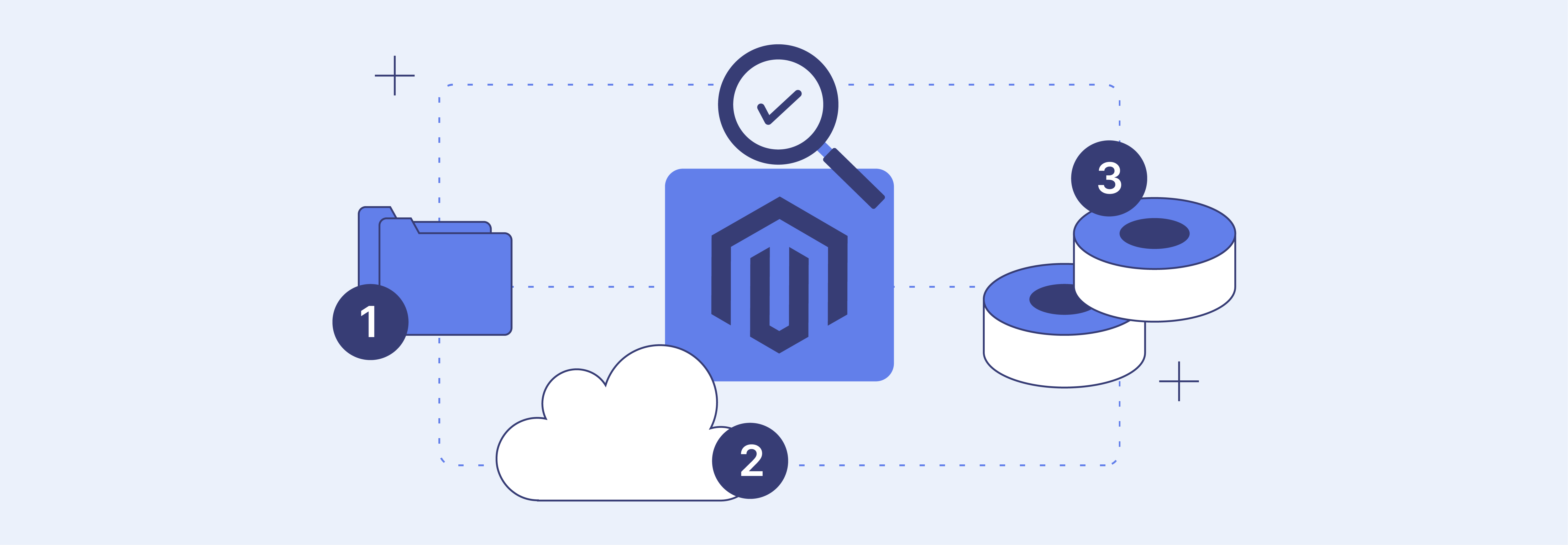
You must identify all types of data collected from residents through your Magento store. Also, determine where and how this data is stored, processed, and shared within your Magento ecosystem.
2. Review Privacy Policy

Ensure your privacy policy is updated to include CCPA-required disclosures. Verify that your privacy policy is easily accessible from your Magento store, typically through a footer link.
3. Consumer Rights
Implement mechanisms for consumers to exercise their CCPA rights. Provide clear instructions and user-friendly interfaces for consumers to submit CCPA-related requests.
It can be through dedicated web forms or customer support channels.
4. Cookie Consent and Opt-Out
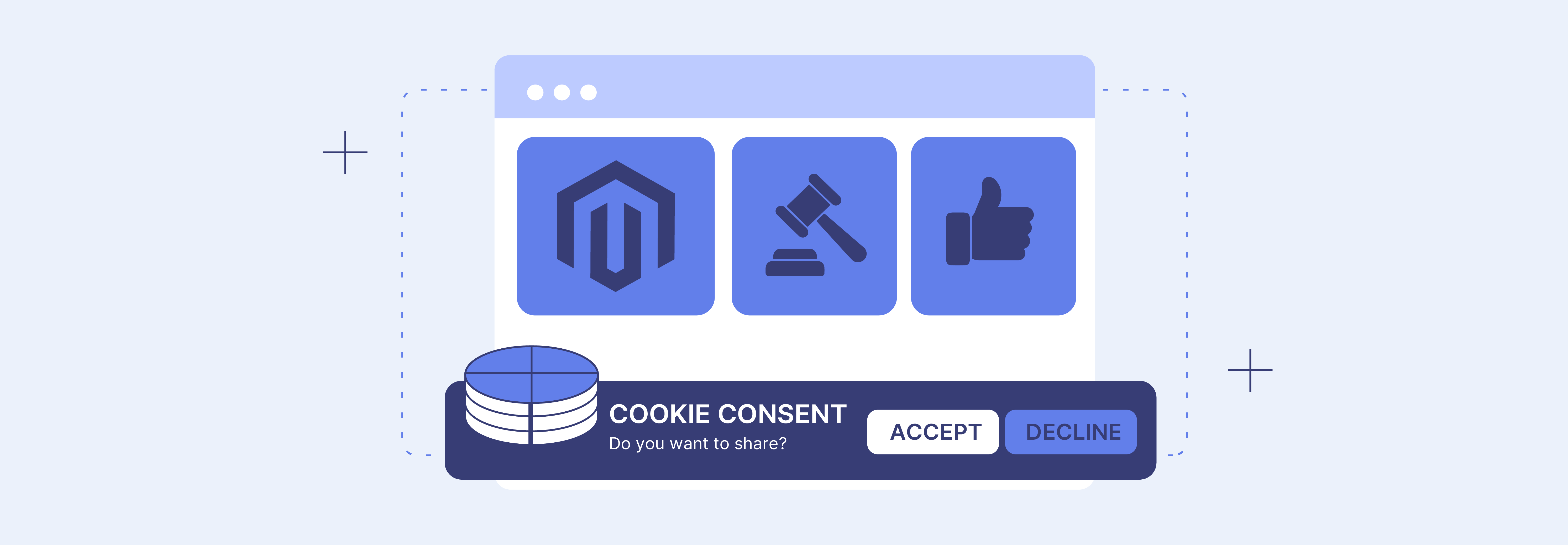
Ensure compliance with CCPA requirements regarding cookie consent and opt-out mechanisms. Your Magento store cookie banner must obtain consent from visitors to use cookies. It includes any cookies used for tracking or analytics purposes.
5. Third-party Integrations and Data Sharing
Review Magento extensions and other integrations used to assess their CCPA compliance. Ensure that any third parties with whom data is shared from your Magento store are CCPA-compliant.
You must have appropriate data processing agreements in place.
6. Data Security Measures

Evaluate the security measures implemented to protect the personal information stored and processed. Implement encryption and access controls to safeguard against:
-
Unauthorized access
-
Disclosure
-
Misuse of consumer data.
7. Regular Audits and Monitoring
Conduct regular audits and assessments of CCPA compliance within your Magento store. Ensure CCPA compliance by monitoring:
-
Data handling practices
-
Privacy policy updates
-
Changes in regulatory requirements.
8. Staff Training and Awareness

Provide training and awareness programs for staff members involved in:
-
Data handling
-
Customer interactions.
Ensure staff members are familiar with CCPA requirements and procedures. They should be able to handle consumer requests related to CCPA rights.
9. Documentation and Record-Keeping
Maintain documentation of CCPA compliance efforts, including:
-
Policies
-
Procedures
-
Records of consumer requests and responses.
10. Consent Management
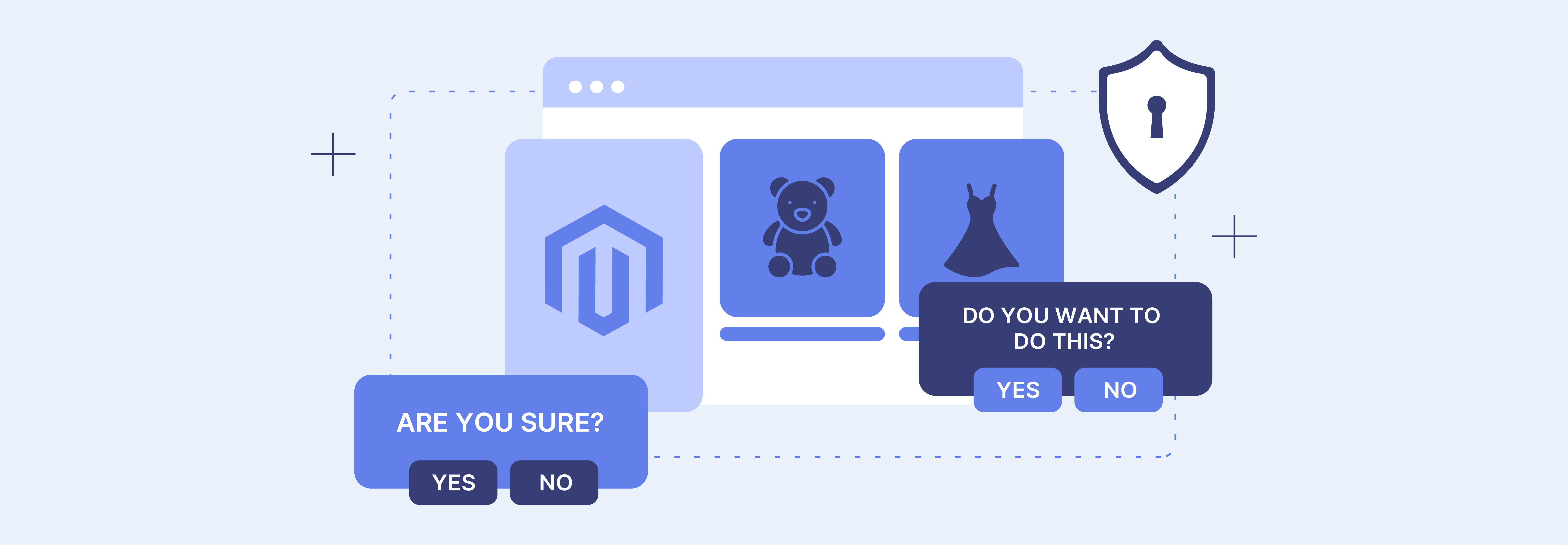
Check if your Magento store has mechanisms in place to obtain explicit consent from consumers. This should be done before collecting their personal information. Ensure that consumers have the option to opt out of data collection and the sale.
11. Data Access Requests
Check if your Magento store has processes in place to handle consumer requests to access their data. Ensure that there is a streamlined process for verifying the identity of the consumer making the request.
The response must be made within the CCPA-mandated timeframe.
12. Data Deletion Requests
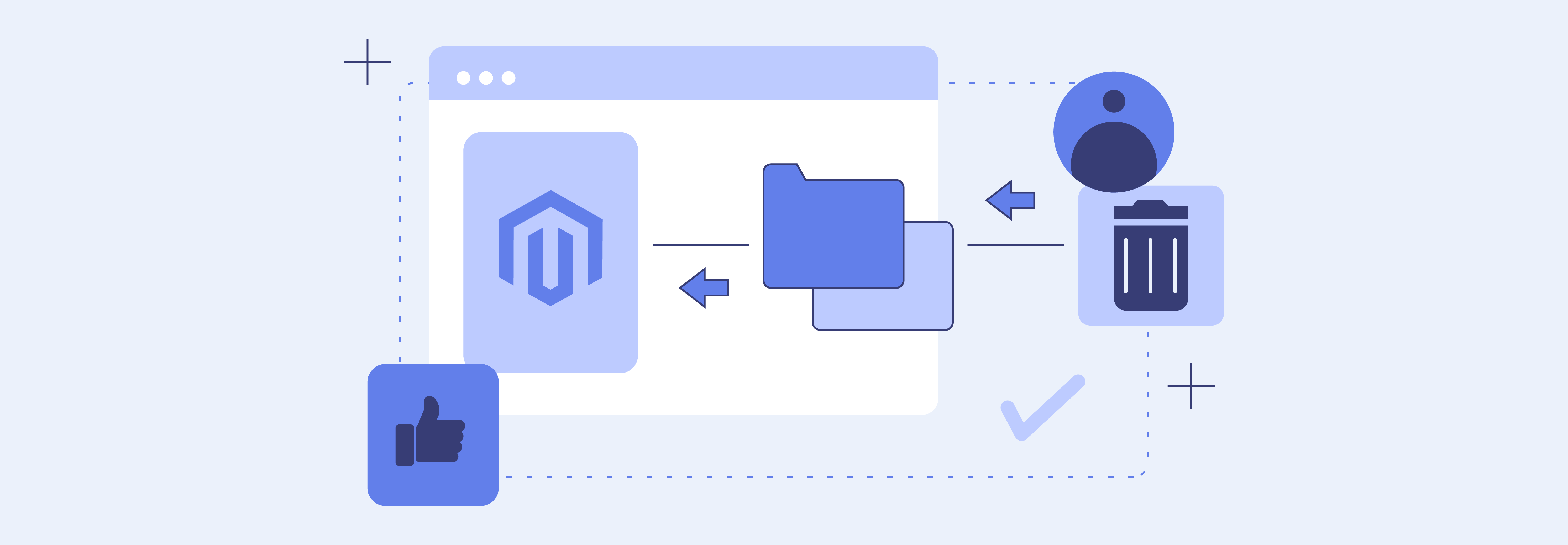
Check if your Magento store can facilitate consumer requests to delete their data. Ensure that the data deletion process is thorough and complies with CCPA requirements. It includes the removal of data from backups if necessary.
FAQs
1. Can Magento be used to manage newsletter subscriptions in compliance with CCPA?
Magento offers functionality to manage newsletter subscriptions while respecting CCPA regulations. Magento's built-in features can be used to obtain explicit consent from users before adding them to mailing lists.
2. Does Magento offer CCPA-compliant features for users to contact businesses?
Magento provides features for users to contact businesses in compliance with CCPA regulations. This includes Contact Us forms and communication channels within the e-commerce platform. It is a way for users to submit inquiries or requests regarding their data.
3. How does Magento's admin panel support CCPA compliance for businesses?
Magento's admin panel offers tools and functionalities that support CCPA compliance for businesses. This includes features for managing user consent and handling data access and deletion requests.
It also monitors and audits data processing activities to ensure adherence to CCPA regulations.
4. Are there any specific plugins available for Magento to enhance CCPA compliance?
There are plugins available for Magento specifically designed to enhance CCPA compliance. This plugin offers features to streamline the process of managing data and obtaining consent.
Summary
CCPA Magento ensures a better customer experience by safeguarding their data within your store. It also uncovers several other points, including:
-
Key provisions of the CCPA include consumer rights and transparency obligations.
-
CCPA Magento implements features such as data access requests and privacy policy updates.
-
Compliance ensures legal adherence, builds trust, avoids penalties, and provides a competitive edge.
-
CCPA is different from GDPR in scope, consumer rights, consent models, penalties, and enforcement.
-
Practical steps for assessing CCPA compliance in your Magento store are listed above in detail.
Explore optimal Magento server hosting solutions to ensure that your Magento 2 store complies with CCPA compliance.




